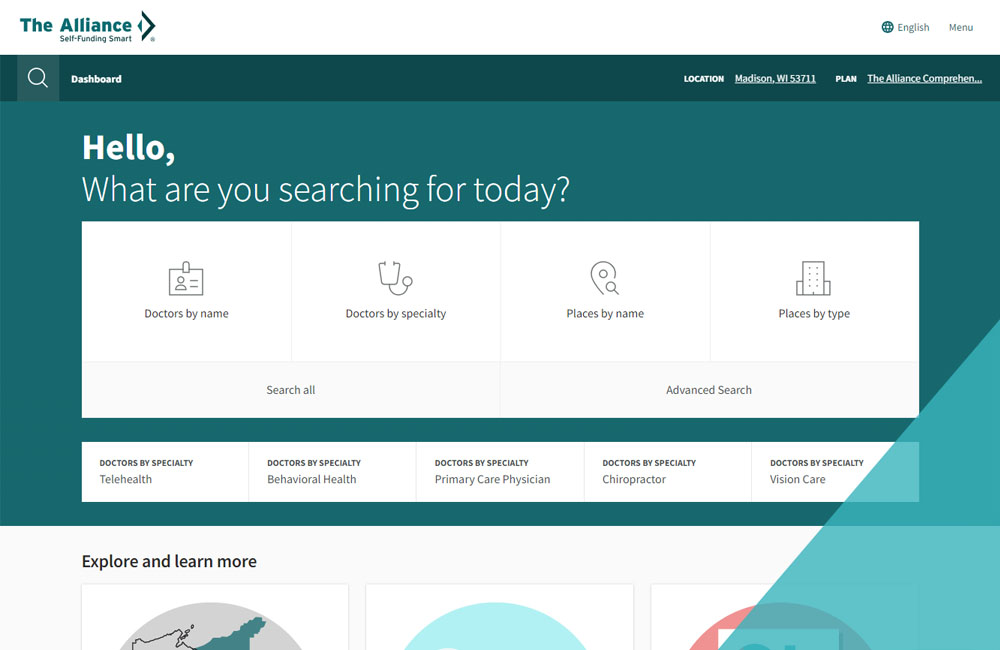
The Digital Healthcare Experience: The Importance of Digital Health Tools for Self-Funded Employers
In today’s digital age, the way consumers access and interact with healthcare is undergoing a significant transformation. Yet, despite the advancements, poor digital healthcare experience remains a significant barrier. This causes many individuals to delay or skip necessary care. Recent data reveals that almost half (47%) of healthcare consumers have skipped or delayed care in the past year. External Link. Opens in new window., with annual wellness visits being the most commonly missed.
This blog explores the crucial role of accurate, user-friendly tools in digital healthcare. We will also explore solutions that can promote timely, high-value healthcare for all.
The Growing Dependence on Digital Healthcare Tools
As digital healthcare becomes more accepted, the importance of user-friendly digital health tools is increasing. According to a Kyruus Health survey, 70% of healthcare consumers went online the last time they searched for care, and 32% began their search on their health plan’s website or app. External Link. Opens in new window.. Employees and their covered family members want to see in-network options and cost estimates before committing to a specific provider. This underscores the growing expectation for health plans to provide accurate information through accessible digital tools.
The Demand for Accurate Information and Seamless Digital Experiences
Despite health plans’ significant investments in digital healthcare tools, awareness and usage of these tools are declining. Those who do use them often need additional guidance. Generational differences play a role in how these tools are perceived and used. Members of Gen Z are particularly inclined towards transparency tools and have higher expectations for their digital experiences. Older generations typically need more guidance to use digital health tools.
Regardless of age, there is a universal demand for a digitally integrated healthcare experience.. External Link. Opens in new window. Healthcare consumers want the ability to find and compare in-network providers, understand the potential costs of care, and book appointments digitally. A lack of accurate information and user-friendly self-service solutions is leading patients to delay or skip care. Some examples are online appointment scheduling and cost estimation tools. In fact, 30% of all consumers and 44% of Gen Z respondents skipped or delayed seeking care after finding inaccurate provider information. External Link. Opens in new window. within their plans’ digital health tools. And only 32% strongly agree that their health plan can provide accurate information about expected costs for medical services,. External Link. Opens in new window. a 10-percentage point decrease from last year.
Using the Right Digital Healthcare Tools
These issues highlight the importance of having the right benefit partners to ensure the health plan’s digital health tools are accurate and tailored to the needs of the employee population. The Alliance’s Find a Doctor tool. External Link. Opens in new window. allows employees and their covered family members to find in-network providers, facilities, and durable medical equipment (DME) providers. Users can see which providers are accepting new patients and what languages they speak. The Alliance also designates providers in the Find a Doctor tool as high, medium, and low cost. This ensures patients can compare providers in their area and make an informed decision about their care. The Find a Doctor provider database is consistently updated to ensure consumers have access to accurate information.
The Alliance also provides cost estimates for shoppable, non-emergent procedures. This gives patients an accurate idea of what they will have to pay for their healthcare services. Our Smarter Care AdvisorSM allows users to search and compare the cost of procedures with different providers, empowering them to make smarter, more informed decisions about their care.
The Role of Employers in Educating Employees
Employers play a vital role in educating their employees about available digital healthcare tools and how to use them effectively. According to recent findings, 68% of those who have skipped care, and nearly 60% of all consumers, agree that they need more help understanding and navigating healthcare options.. External Link. Opens in new window. Even if employers offer effective digital healthcare tools, some plan participants will be unaware of the tools. They may even be unsure how to access them. Employers can bridge the gap by offering resources and education on how to maximize the benefits of their health plans.
The Alliance creates resources like our better healthcare consumer packet and educational videos that employers can share with their employees and their families. These resources help employees understand their health plans and the digital healthcare tools available to them. Reach out to your account executive for these resources.
Leveraging Technology for Better Health Outcomes
Health plans must deliver an effective digital experience to prevent gaps in care and engage members effectively. This includes providing comprehensive, accurate information that helps members find and compare in-network providers and understand potential care costs. While there are challenges, including inaccurate information and a lack of user-friendly tools, there are also significant opportunities for improvement. A focus on transparency, accessibility, and seamless digital integration will be essential in creating a healthcare system that works for everyone.
Contact us to learn more about how The Alliance’s digital healthcare tools and educational resources can help you manage your healthcare spend and improve the health of your employees.








